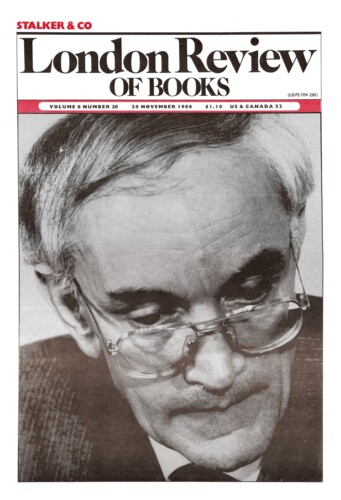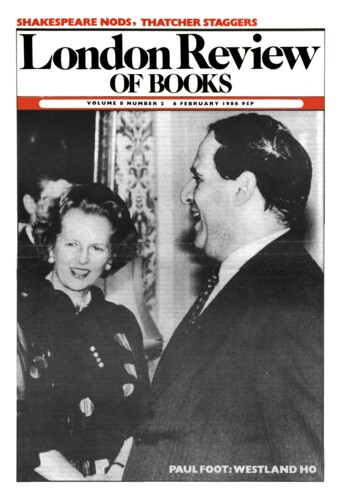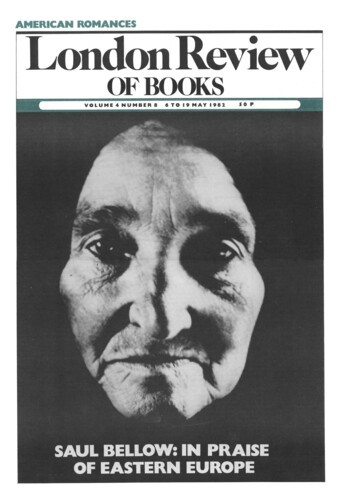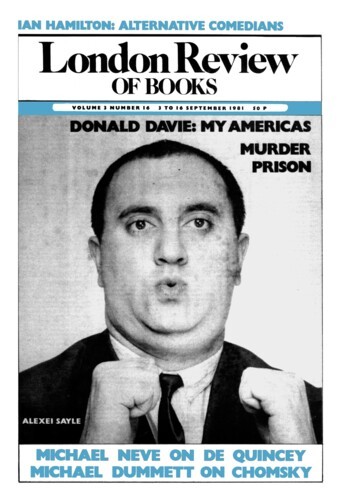Argentine Adam
Malcolm Deas, 20 November 1986
Most recent books in English on Argentine history are on economic history. On looking them over, readers who are not economic historians will probably reach the same conclusion as did J.O.P. Bland (better-known as the unwitting partner of the forger Sir Edmund Backhouse, the ‘Hermit of Peking’) after conscientiously preparing himself for a visit to the River Plate in 1916: ‘From the library catalogue point of view, the subject might well seem to have been exhausted … Yet how few there be amongst all these works (as some of us know to our cost) that properly and worthily inculcate the profitable exercise of travel … Say what you will, the great majority of them are so dreadfully infected with stodgy commercialism, so monumentally useful, that their general effect upon the mind (unless it be the mind of a bagman) can only be compared to a surfeit of suet pudding.’





